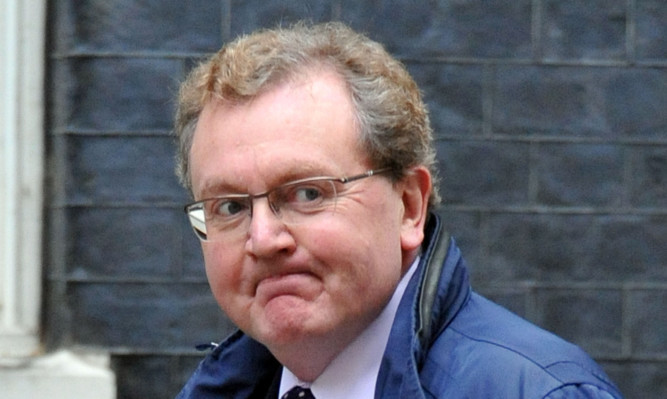Changes to the Scotland Bill will make clear “beyond any reasonable doubt” that the UK Government has fulfilled the vow of more powers to Holyrood, the Scottish Secretary said.
David Mundell insisted the Scottish Parliament would be one of the most powerful devolved assemblies anywhere in the world when the new legislation is passed.
Government amendments to the bill will be laid today, ahead of a Commons debate next week.
Ministers have already said they will devolve power over abortion laws to MSPs, along with tabling amendments aimed at strengthening the permanence of the Scottish Parliament.
Holyrood will get new powers over tax and welfare as a result of the bill – which is being introduced in the wake of the Smith Commission review of devolution that followed last year’s Scottish independence referendum.
Mr Mundell also confirmed that the amendments would include one to remove the definition of “relevant carers”, allowing the Scottish Parliament greater flexibility to determine what any new benefits for carers could be.
The new powers are due to come in from April 2017 – but the SNP Government at Holyrood has threatened to block the bill if it believes accompanying changes to the way Scotland is funded would see them lose out.
But the Scottish Secretary said: “These improvements will strengthen the Scotland Bill and put beyond any reasonable doubt for any reasonable person that the Government is delivering the Smith Agreement exactly as we promised we would. We are making the Scottish Parliament one of the most powerful devolved parliaments in the world.”
He added: “We have listened to points raised as the bill has been debated and taken steps to improve the legislation even in areas where we believed the bill was already delivering Smith.
“For example, there has never been a power for the UK Government to block welfare changes from Holyrood but we have taken steps to make it even clearer that there are no UK vetoes in this bill. We are acting in good faith and want to build consensus.
“Both of Scotland’s governments have a responsibility to meet our commitments and deliver the new powers that Scotland voted for.
“Having said that I don’t expect the Scottish Government or SNP MPs to agree that the legislation goes far enough. They want independence and this is not independence.
“They even wanted full fiscal autonomy but we rejected that because it is a bad deal for Scotland. The changes we are making to the bill do not go beyond the Smith Agreement because the people of Scotland rejected independence in favour of holding on to the benefits of being part of a strong United Kingdom.
“I am confident the House of Commons will support the Scotland Bill next week and we will enter a new phase where the Scottish Government will need to start telling us how they intend to use these new powers. Will they top up benefits? Will they create new benefits and how much will it all cost?”
